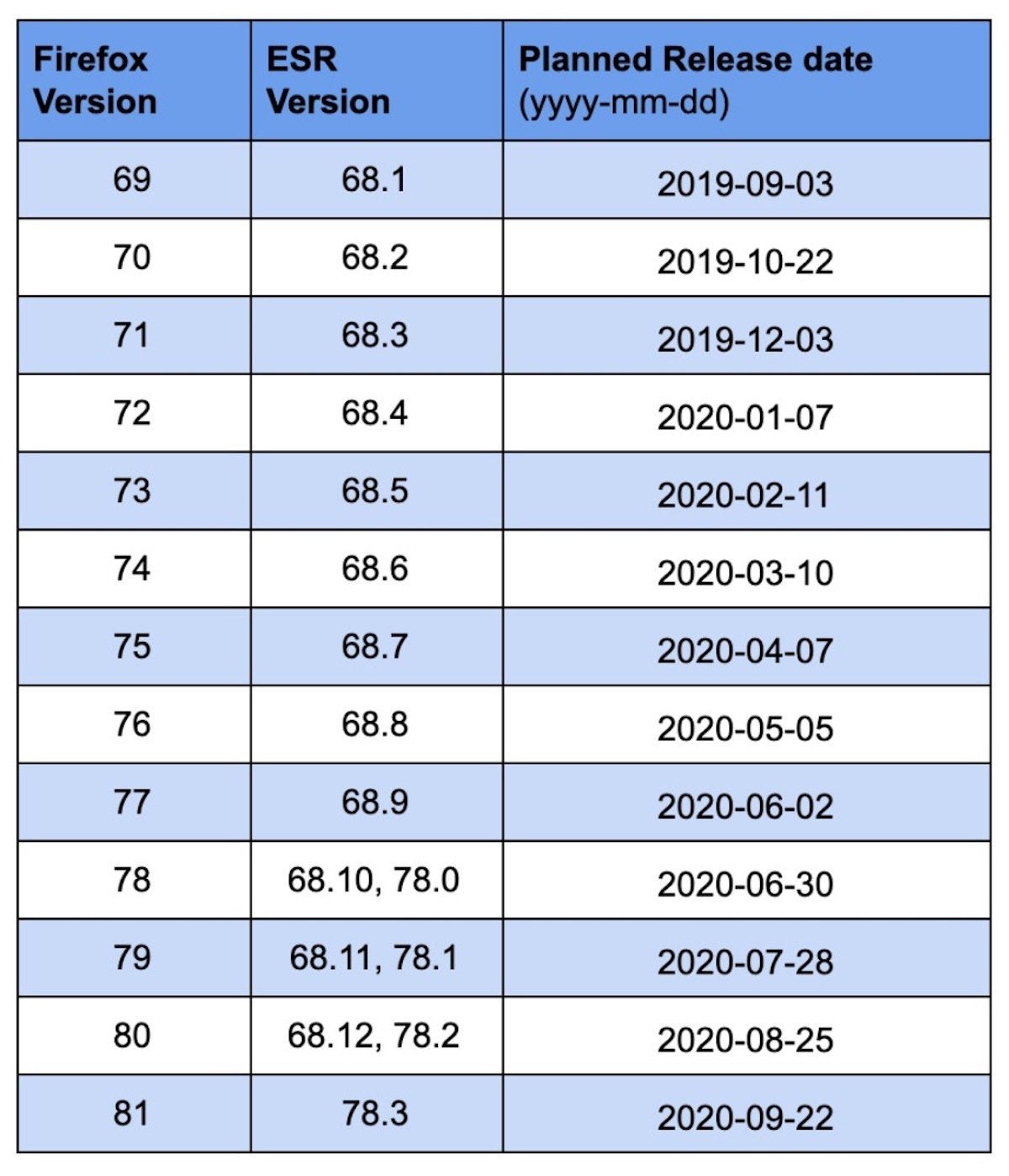Mozilla on Tuesday announced it would accelerate Firefox releases by reducing the interval between upgrades to just four weeks.
Firefox has been on a relatively rapid release cadence - an upgrade every six to eight weeks - since 2011, when Mozilla shifted to a faster schedule, a move seen at the time as reaction to the then-up-and-coming Chrome from Google. Prior to that, Mozilla spent up to a year - and longer - between upgrades.
Now, it'll be just four weeks.
"We're adjusting our cadence to increase our agility, and bring you new features more quickly," wrote Ritu Kothari and Yan Or, the Firefox release management team leader and senior director of product integrity, respectively, in a post to Mozilla's Hacks blog. "We've had many requests to take features to market sooner ((and)) feature teams are increasingly working in sprints that align better with shorter release cycles."_
Mozilla will ease into the faster pace, said Kothari and Or. The next interval - between the already-out Firefox 69 and the future Firefox 70 - will remain at seven weeks but the next (between Firefoxes 70 and 71) will be shortened to six weeks. (Until the cadence change, the year's final interval was to be seven weeks.) The next two upgrades, to Firefoxes 72 and 73, will take place in January and February, each five weeks after its predecessor. The pace will quicken to four weeks with Firefox 74, slated to ship in March, and remain there.
Kothari and Or showed a timetable of planned launch dates under the new scheme: The timetable indicated 13 releases of Firefox in 2020, or almost double the number of recent years. Mozilla delivered seven upgrades in 2017 and another seven in 2018; it's slated to do the same this year. In 2018, the average interval between upgrades was 56 days, exactly twice the length of the future four-week span.
The two Mozilla officials touted the advantages of new 28-day interval. "Shorter release cycles provide greater flexibility to support product planning and priority changes due to business or market requirements," Kothari and Or asserted. "With four-week cycles, we can be more agile, and ship features faster. Also, we put new features and implementation of new Web APIs into the hands of developers more quickly."
Firefox Extended Support Release (ESR) - the designed-for-enterprise build that limits feature changes to about once each year - will not be affected by the faster tempo. "We anticipate a major ESR release every 12 months with three months support overlap between new ESR and end-of-life of previous ESR," Kothari and Or said. The next two ESR releases will be in June 2020 and June 2021.
To account for the shorter periods of development, Mozilla will increase the frequency with which it cuts and distributes new betas, said Kothari and Or. "We will move to more frequent Beta builds, similar to what we have today in Firefox Nightly," the two wrote.
And even though it will be even more important than before to move customers from one version to the next, Mozilla still intends to roll-out each new Firefox in stages so that if a problem pops up, it does not affect everyone.
 Mozilla
Mozilla
Mozilla has set a new release schedule for Firefox that will cut the interval between upgrades by about half.

